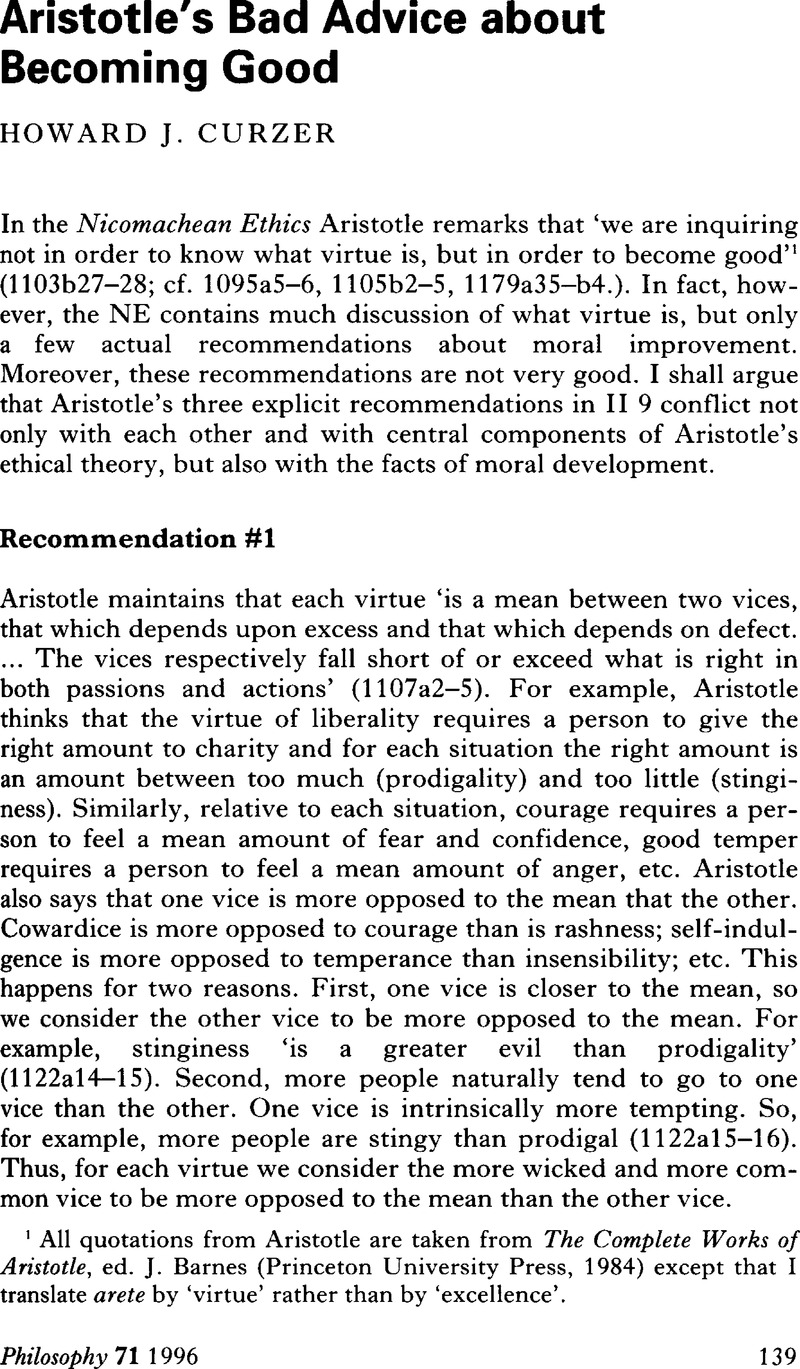Article contents
Aristotle's Bad Advice about Becoming Good
Published online by Cambridge University Press: 30 January 2009
Abstract

- Type
- Discussion
- Information
- Copyright
- Copyright © The Royal Institute of Philosophy 1996
References
1 All quotations from Aristotle are taken from The Complete Works of Aristotle, ed. Barnes, J. (Princeton University Press, 1984) except that I translate arete by ‘virtue’ rather than by ‘excellence’.Google Scholar
2 e.g. Hardie, W. F. R., Aristotle's Ethical Theory (Oxford University Press, 1968),134–135;Google ScholarUrmson, J. O., ‘Aristotle Doctrine of the Mean,’ Essays on Aristotle's Ethics, ed. Rorty, A. (Berkeley: University of California Press, 1980), 162.Google Scholar
3 Note that although performers of vicious acts can become virtuous, vicious people cannot (1114A19-21; 1150A21-22; 1150b29-34).
4 Losin, P., ‘Aristotle Doctrine of the Mean,’ History of Philosophy Quarterly, 4(1987), 336–337.Google Scholar
5 Seddon, F., ‘A Problem at Nicomachean Ethics 1109a30-bl3,’ Ancient Philosophy, 8 (1988), 103.CrossRefGoogle Scholar
6 Annas, J., ‘Aristotle on Pleasure and Goodness,’ Essays on Aristotle's Ethics, ed. Rorty, A., (Berkeley: University of California Press, 1980), 291.Google Scholar
7 Annas, 289.
- 4
- Cited by


